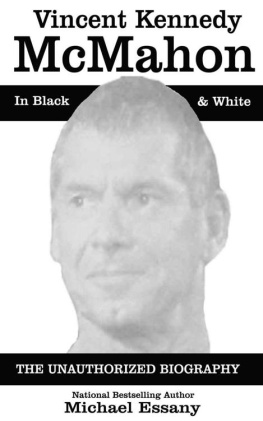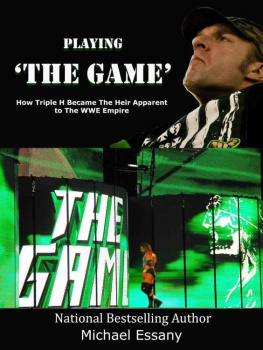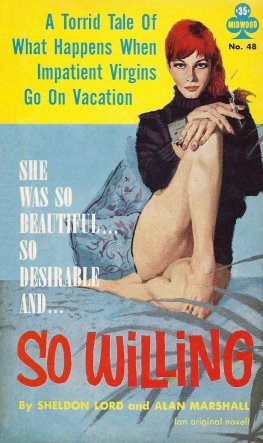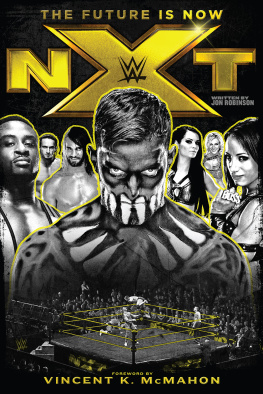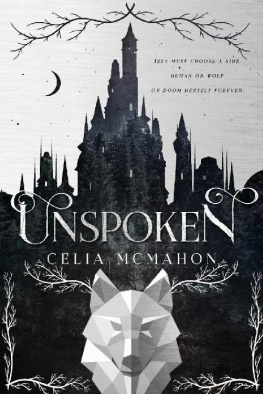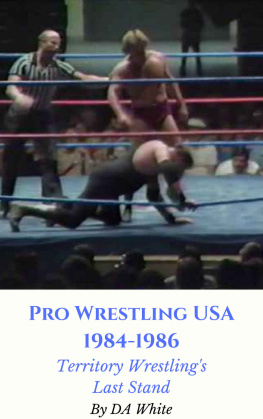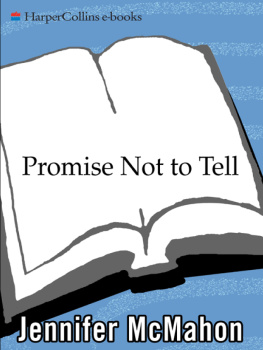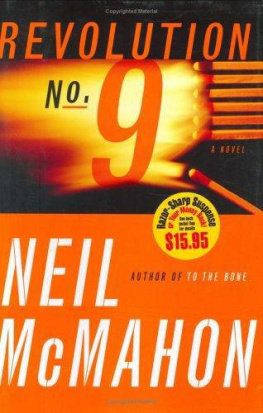Chapter 1: A No Holds Barred Beginning
Violent. Dramatic. Controversial. Scandalous.
These descriptions could very easily apply to the world of professional wrestling. But perhaps more fittingly, they pertain to the childhood of Vincent Kennedy McMahon.
"I grew up in an 8-foot wide trailer, McMahon admits. That's where I come from. And its a tremendous advantage, quite frankly. Because I am Americana. I'm middle class - actually, lower middle class."
As a youth, the future billionaire and head of sports entertainment's most powerful brand was tormented by physical cruelty, confined to a trailer park, and, by McMahon's own admission, subjected to some form of sexual abuse.
Born August 24, 1945, in Pinehurst, North Carolina, Vincent K. McMahon represents the third generation of a legendary professional wrestling family - a dynasty that includes his grandfather Jess McMahon - also a boxing and wrestling promoter - and his father, Vince McMahon, Sr., the proverbial founding father of contemporary sports entertainment.
Vince Jr., however, did not personally know his biological father for most of his early years. For the majority of his adolescence, Vincent Kennedy McMahon - as he is internationally recognized today - was known as Vince Lupton. Vince was given the surname of Lou Lupton, one of his five revolving stepfathers. But as McMahon would reveal years later, it was Lupton's violent outbursts that seemingly did more than anyone or anything else to spoil the innocence of his childhood.
"I grew up in a very volatile environment," McMahon told Playboy magazine in 2001. My view was that if I took a beating and lived, I won. I still have that view. It gives me a tremendous advantage, because I'm not afraid of failure. Don't get me wrong--I hate falling. But I'm not afraid to take chances and fall on my ass, because if I live through it I'll be better off, and I'll win."
The Making of a Man
"My parents got divorced and I went with my mom, Vickie," McMahon recalls. "She was in the church choir. A real performer, a female Elmer Gantry. Very striking, with an excellent voice. Lived with her and my real asshole of a stepfather, a man who enjoyed kicking people around."
Despite living with an older brother, it was primarily Vincent who bore the brunt of Lupton's beatings.
"I was the only one of the kids who would speak up," he says, "and that's what provoked the attacks. You would think that after being on the receiving end of numerous attacks I would wise up, but I couldn't. I refused to. I felt I should say something, even though I knew what the result would be.
Lou Lupton, an electrician by trade, supposedly beat Vince violently, often using his trade's tools - including pipes and wrenches - to inflict punishment.
Sickeningly, the altercations had already begun taking place by the time McMahon was just six years old.
"The slightest provocation would set him [Lupton] off," McMahon says, recalling how he would come to his mother's aid when Lou Lupton became violent with her, often striking Vickie physically.
"It's unfortunate that he died before I could kill him," McMahon told Playboy. "I would have enjoyed that."
When asked by ESPN why he wanted to kill his stepfather, McMahon simply replied: "Because he needed it. And I would have happily been the person to have done that."
But, ultimately, it was his stepfather's horrific behavior that McMahon says illustrated how a man should, in fact, never behave.
"I learned how not to be [a man]," he admits. "By the time I was 14 I was on my own. I was pretty much a man then. Physically, at least. In other ways I'm still becoming a man."
Although McMahon has refused to discuss in detail the nature of alleged sexual abuses that took place in his upbringing, the future WWE chairman did confess that a woman - not Lupton or another of his stepfathers - was responsible for the "weird" acts that have since been described by others as a form of sexual abuse.
Without explicitly revealing more facts of the matter, McMahon himself hinted at Playboy that he has remained estranged from his mother. He wouldn't confirm or deny rumors that the alleged sexual abuse was caused by or inflicted by her.
McMahon, however, has never played the role of victim, despite the fact that he readily concurs with the obvious assumption that his unfortunate experiences in childhood ultimately shaped - emotionally and otherwise - the person he grew to become.
"I don't think we escape our experiences," McMahon concedes. "Things you may think you've pushed to the recesses of your mind, they'll surface at the most inopportune time, when you least expect it. We can use those things, turn them into positives--change for the better. But they do tend to resurface."
"You know, I'm not big on excuses," he says. "When I hear people from the projects, or anywhere else, blame their actions on the way they grew up, I think it's a crock of shit. You can rise above it. This country gives you the opportunity if you want to take it, so don't blame your environment. I look down on people who use their environment as a crutch."
Heel Turn
In professional wrestling, a "heel" is a villainous character - one who habitually bends or breaks the rules, all while consistently speaking or behaving in an anti-hero fashion.
During his teenage years, Vince McMahon played the heel in real-life, often raising hell and getting into trouble.
"I was totally unruly," McMahon confesses, noting that he wouldn't attend school and routinely engaged in illegal activities. Chief among said behavior was automobile "borrowing" - not stealing.
"I always brought them back," he said of the cars he temporarily appropriated. "I just borrowed them, really. There were other thefts, too, and I ran a load of moonshine in Harlowe, North Carolina, in a 1952 Ford V8. That was a badass car at the time."
That Ford, nevertheless, had nothing on McMahon when it came to being a real badass. While still in his teens, McMahon would frequently find himself engaged in fights with Marines stationed at Cherry Point, which just outside of his native Havelock, North Carolina.
"There was a place called the Jet Drive-In," McMahon reminiscences. "Real creative--the Jet, because of all the military jets at the base. On Friday and Saturday nights it was time to get it on with the Marines. It was a challenge. Most of them were in great condition, but they didn't know how to pick a fight. I'm not saying they were easy pickings. They got their testosterone going and they were all liquored up. Some of them were real tough. But me and my guys were street fighters. I mean, maybe you've been through basic training and you know how to operate a bayonet. That's different from sticking your finger in somebody's eye or hitting a guy in the throat, which comes naturally to a street fighter. And they can't believe you're not 'fighting fair.' Suddenly they can't breathe and/or see, and they realize: 'Oh my God, am I in for an ass-kicking.'"

